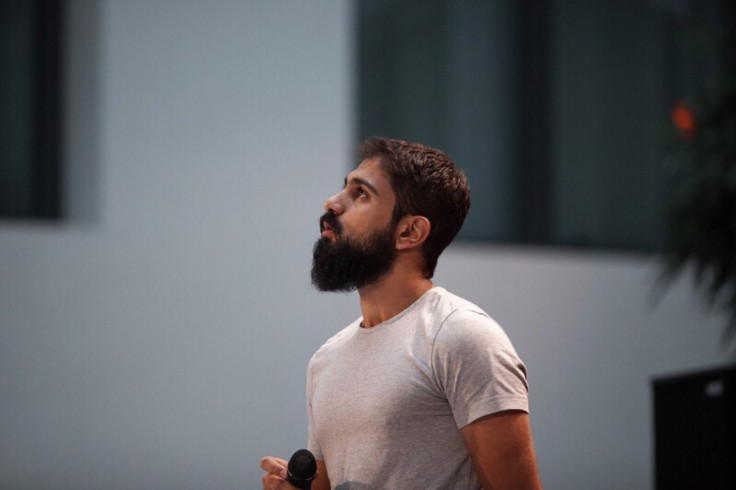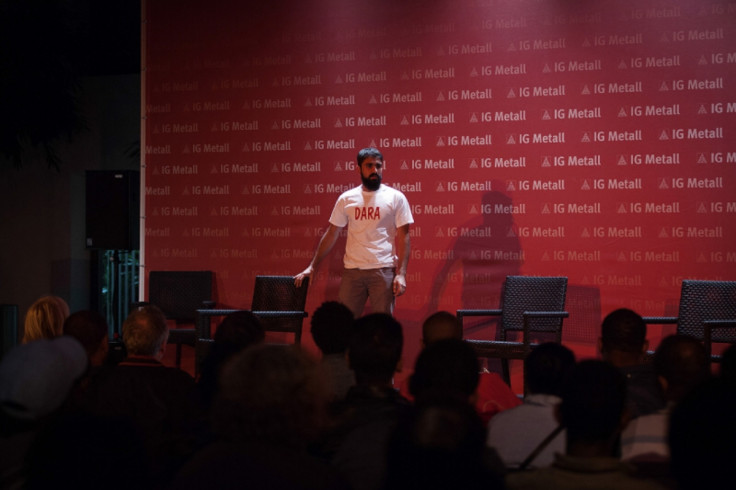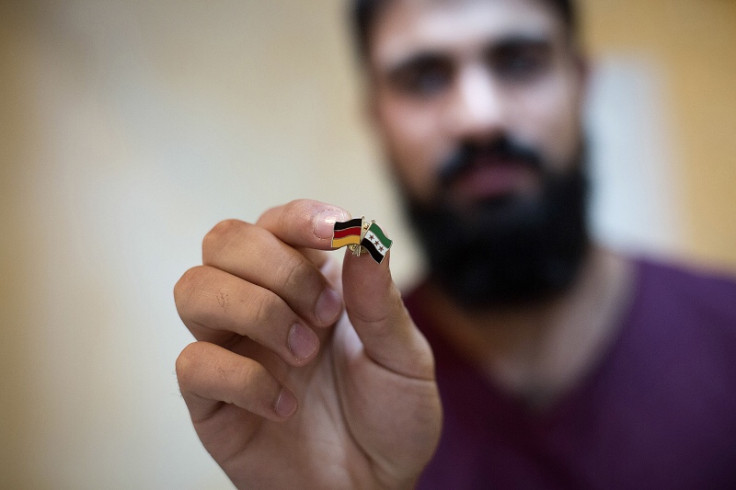Germany's refugee opera: How migrants are using theatre to promote integration and tolerance
At the Union HQ of IG Metall in Frankfurt, the audience await a unique performance. They have come to see Zaide, Wolfgang Amadeus Mozart's unfinished opera from 1780, but with a twist. This production is performed entirely by refugees and is reimagined to tell the difficult journeys they have undertaken to reach Europe.
"I hadn't been in any theatre before or sung before," says Khaled Alhussein, a 20-year-old Syrian national who describes in the play how he reached Germany from his war-torn homeland. "I joined the project to change the image of refugees, of estranged people [to show] that we are not monsters," he says. "We don't come here to bite you or take your money."
Organised by renowned opera singer Cornelia 'Conny' Lanz, Zuflucht Kultur is a theatre group that stages productions aimed at promoting integration and tolerance in Germany. The group, whose performers come from Nigeria, Benin, Iraq, Afghanistan, Syria and elsewhere across North Africa and the Middle East, have toured all over Germany, and even performed for the German president Joachim Gauck.

The group rewrote the opera to include the real-life stories of the refugees and their journeys to Germany, including Khaled's. He travelled across North Africa and Europe to flee the war in his home country, arriving in Germany approximately 18 months ago.
Hailing from the city of Daraa close to the border with Jordan, he was studying mechanical design engineering at university level in Damascus. But when the fighting between rebels and President Bashar al-Assad's forces intensified, and his friends began to flee the country, he made the decision to follow them.
Khaled flew legally to Algeria then travelled east over land to Tunisia where he met an 'agent', or trafficker, before continuing on to Libya. He stayed for a period of about two weeks in a house by the coast before attempting the crossing.
"The boat was only 18 metres [long] and we had over 400 people inside the boat and above," Khaled remembers. The motor died before they crossed the Libyan sea border and they were picked up by the Italian navy and taken to safety.

He travelled up to Switzerland before crossing over to Austria and then finally over the border on a train to Munich, at which point he was picked up by German police and taken to a station to be registered. For Khaled, it was an arduous ordeal. "Two Syrian people died along the way. We were destroyed, absolutely," he says.
Khaled is one of the 3,000 or so refugees who have been placed with a German family. He lives with Andrea and Stefan, a middle-aged couple whose children have grown up and left home, in Wolfratshausen, a suburb to the south of Munich.
While he has so far been unsuccessful in finding a job, Khaled has signed up to German language classes and to a refugee volunteering service. He has also become actively involved in counter protests against Pegida, Germany's growing anti-immigration right-wing movement, which has witnessed a surge in popularity in the wake of the thousands of refugees entering the country last year.

It was through these demonstrations that he found out about Zuflucht Kultur and agreed to perform a play about his journey. Khaled says he is grateful for the chance to tell his story, providing German audiences with a chance to understand his plight, and that of the thousands of other refugees who have entered the country in recent months. "It's not acting, it's my scene, my story. It's not fake, it's a real story," he notes.
After the performance, the audience were asked to donate to a fund that would be used to help relatives of the refugees in their home countries. A portion of this money went to Khaled's brother Ahmad, allowing him to travel safely from a Jordan refugee camp to the Netherlands, where he is now claiming asylum with his two other brothers. The four managed to reunite when Khaled visited his brothers there at the end of 2015.
© Copyright IBTimes 2025. All rights reserved.






















